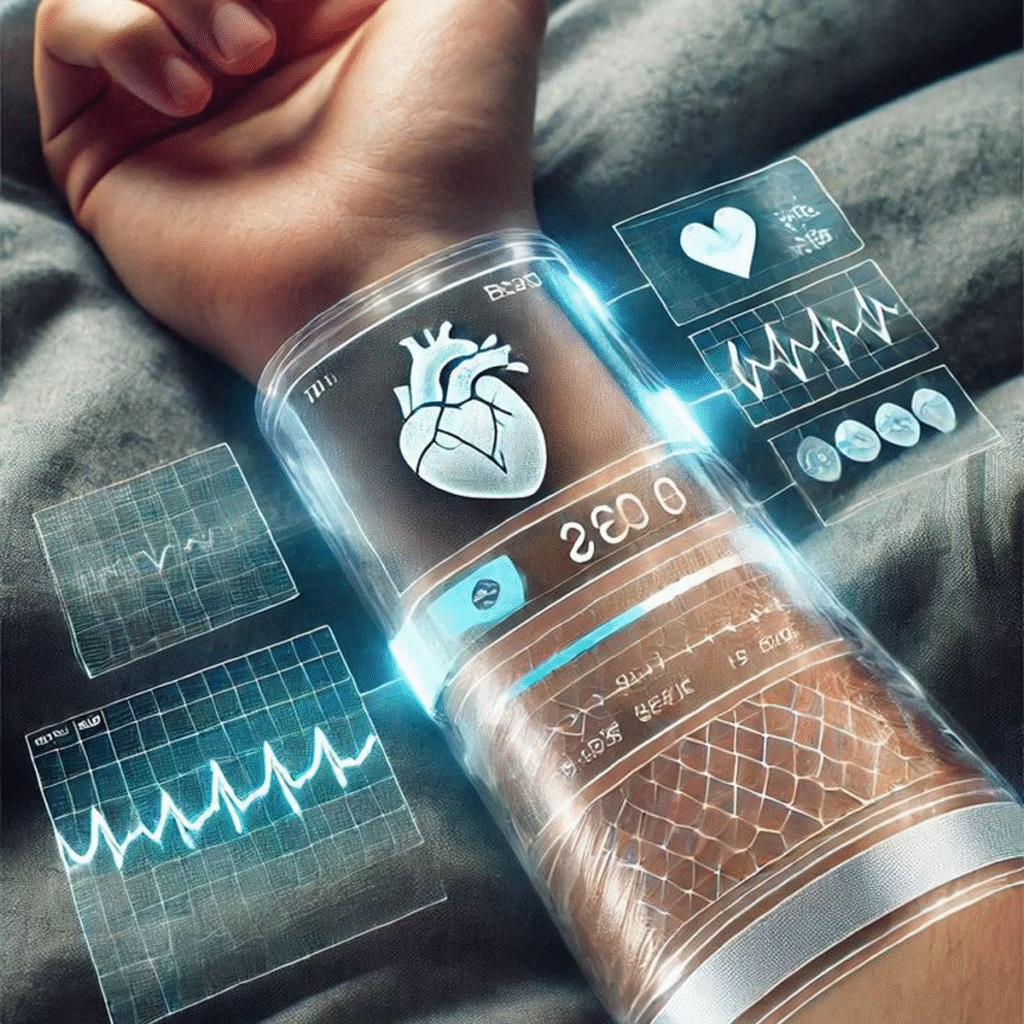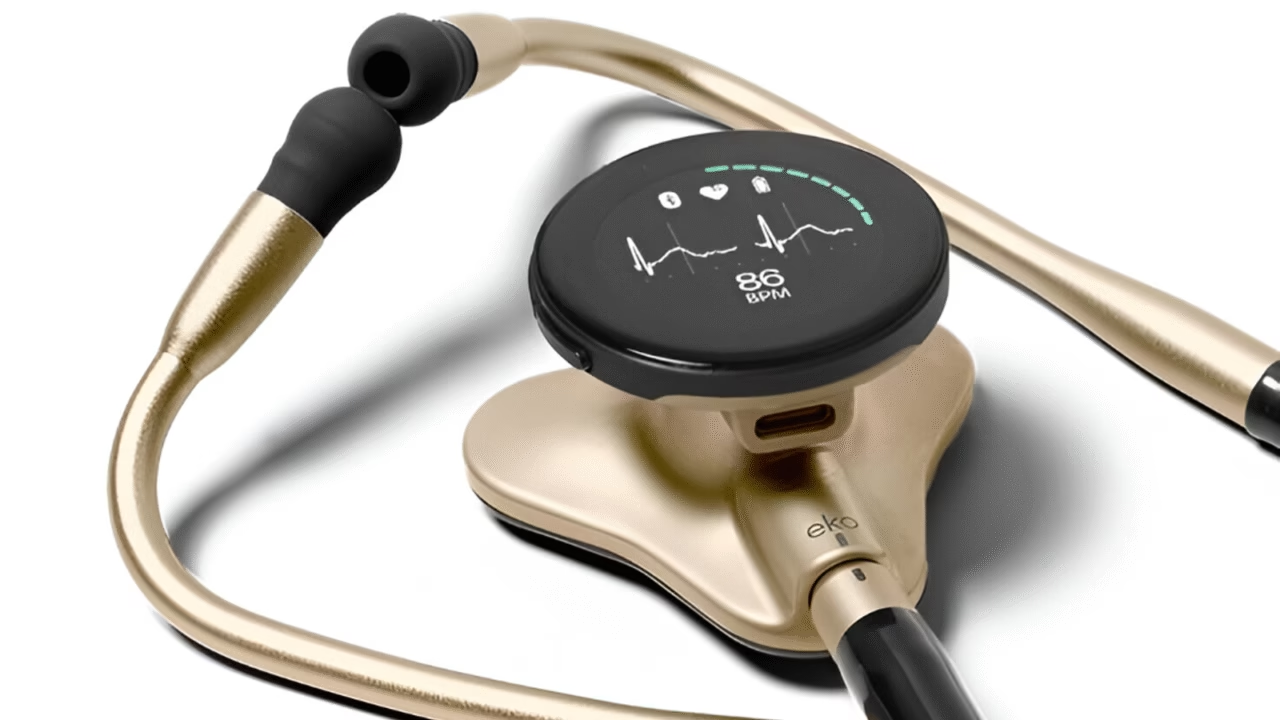Introducing the innovative solution that cardiologists have eagerly anticipated: an AI-enhanced stethoscope that transforms a time-honored medical instrument into a rapid diagnostic tool.
What’s the Technological Excitement?
Created through a partnership between Imperial College London and Imperial College Healthcare NHS Trust, this AI-enhanced stethoscope is capable of identifying three significant heart conditions—heart failure, heart valve disease, and atrial fibrillation—in merely 15 seconds. This is not mere speculation; it is scientifically validated evidence presented at the European Society of Cardiology’s annual conference in Madrid.
In contrast to its analog predecessor from 1816, this modern device is comparable in size to a playing card. It integrates a swift ECG reading with high-fidelity audio recordings of blood flow sounds. All information is promptly uploaded to the cloud for AI evaluation, with results sent directly to a clinician’s smartphone.
The Importance of This Development
In a practical trial conducted across approximately 200 GP surgeries in the UK—encompassing over 1.5 million patients exhibiting symptoms such as fatigue or breathlessness—this tool has doubled the detection rate for heart failure. Diagnoses of atrial fibrillation have tripled, and the identification of heart valve disease has nearly doubled when compared to conventional techniques.
Dr. Patrik Bächtiger from Imperial College London articulates it succinctly:
“The design of the stethoscope has remained unchanged for 200 years—until now.”

The Flip Side
Nonetheless, it is not without its imperfections. In practical applications, false positives have been noted—approximately 66% of individuals identified as having potential heart failure were found not to have the condition upon further examination. This results in additional follow-up investigations, increased anxiety for the patient, and added clinical workload. Therefore, specialists recommend its use solely for patients exhibiting symptoms, rather than as a standard screening method.
The integration into the busy workflows of general practitioners also presents difficulties—around 70% of clinics decreased their usage after a year. Ensuring a smooth adoption process is crucial for its future effectiveness.
What’s Powering the Upgrade?
The stethoscope incorporates Eko Health’s artificial intelligence, which is a frontrunner in AI-driven cardiopulmonary diagnostics. Their FDA-sanctioned algorithms are already capable of identifying low ejection fraction—indicative of heart failure—and structural heart murmurs, such as atrial fibrillation and pulmonary hypertension.
By combining digital auscultation with ECG analysis and real-time AI assessment, Eko’s intelligent stethoscopes are revolutionizing point-of-care diagnostics. This model may soon establish itself as the benchmark for rapid, precise heart evaluations.
Final Thoughts
In the realm of healthcare technology, few advancements merge nostalgia and innovation as effectively. By converting a basic stethoscope into a 15-second diagnostic wonder, researchers are altering the foundational principles of primary care. With enhanced accuracy, earlier detection, and broader accessibility, this AI stethoscope is filled with promise—from frontline general practitioner clinics to remote locations.
The revolution is compact, elegant, and designed to save lives.

